
Pen and ink drawing describes the process of using pens to apply ink to a surface. There is an endless amount of pen and ink techniques. On this page, we will cover the basics of pen and ink drawing techniques, tools, and materials. Some of the materials you may need to create an ink drawing include ink, drawing pens, various nibs, graphite pencil, eraser, paper towel, a paint brush, and a drawing surface.
Drawing with pen and ink allows the artist to create strong areas of contrast. Most ink drawings are completed using black inks on white surfaces which leads to heavy contrast in value. Many artists choose to exploit this contrast. Others, however find it difficult to create gradations in value for this reason.
The following video features excerpts recorded from a 2 part Live Lesson series on drawing with pen and ink. The full lessons (1 hour each) are available to members.
Several techniques of layering marks are used to create the necessary transitions in shading. These techniques include hatching, cross hatching, random lines, and stippling. (Each of these techniques are explored and demonstrated further down this page.)
One appeal of drawing with pen and ink is the clean, finished appearance that can be created. Preliminary drawings can completed using graphite and then drawn over using ink. When the ink has dried, the graphite can be erased, leaving a "controlled" high contrast image.
As mentioned before, there are an endless amount of pen and ink techniques. There are however, a few that are used more frequently and are considered to be the standard for drawing with pen and ink.
Drawing techniques used with ink can be as varied as the artists that use them. There are, of course, a few that are used with some frequency. Let's take a look at each technique in detail...
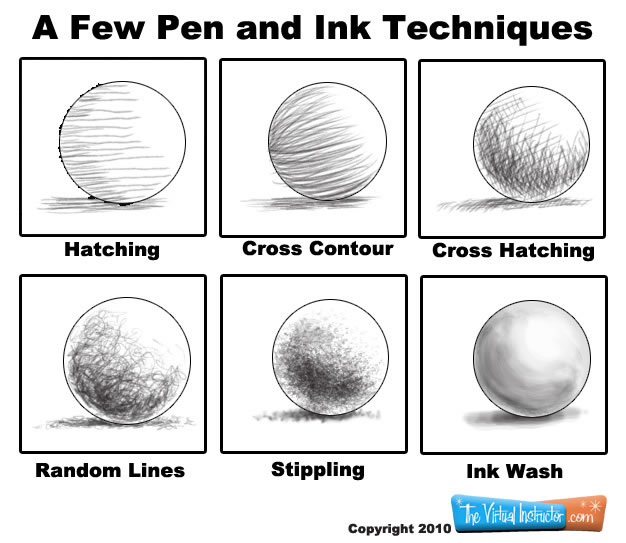
Hatching is a technique used to add value in a linear fashion. The lines used in hatching mostly go in the same direction for a defined area. When hatching is used, the lines do not cross over each other. (Although cross hatching can be used in combination with hatching) Hatching lines can be parallel or they can be used as cross contour lines to help define the form of the object. The closer the lines are to each other, the darker the value. The more space between the lines, the lighter the value.
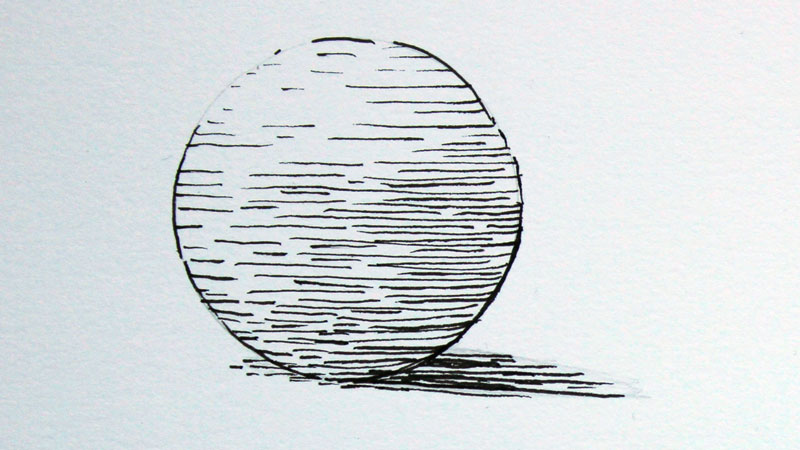
Cross hatching is just like hatching except that the lines cross over each other. The more that the lines cross, the darker the value. Cross hatching can be used with rigid straight lines or as cross contour lines to define the form of the object.
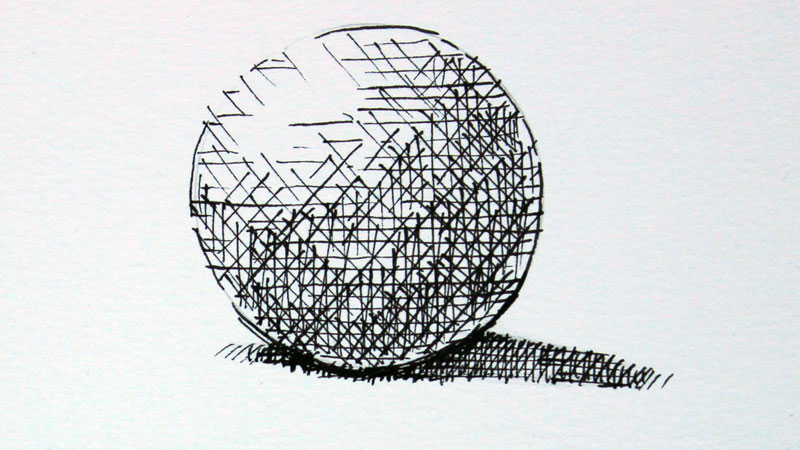
Lines going in various directions can also be used to create pen and ink drawings. By changing the frequency of the crossing of the lines, you can control the range of value produced. Using this method can also create a variety of different textures.
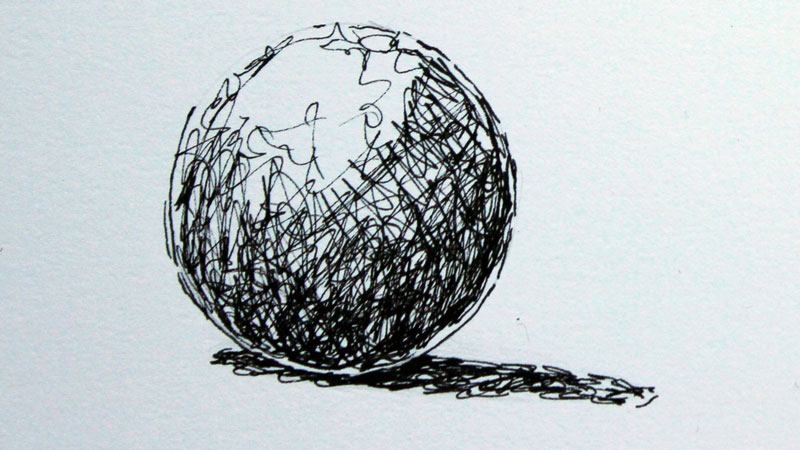
Stippling is adding countless dots to create the value of the drawing. The higher the concentration of dots, the darker the value. The more space between the dots, the lighter the value. Stippling may be time consuming, but it allows the artist to have complete control the application of value, which can produce highly realistic results.
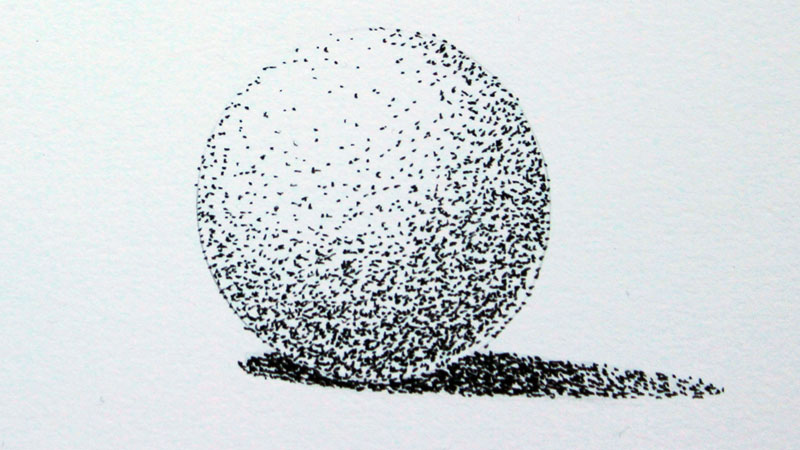
Ink wash is the application of ink with a brush. Ink wash is much like painting with watercolor paint. The more water, the less intense the application of ink. Therefore, value is controlled by the amount of water added to the ink prior to it's application to the surface.
SPECIAL NOTE
Although many may disagree with me, it is may opinion that you should never mix methods. Pick a technique and stick with it. It will make your artwork unified.
There are variety of different types of pens for pen and ink drawing. Traditional ink pens consist of a shaft with an interchangeable nib. These nibs serve as a temporary reservoir for the ink. These pens are sometimes referred to as dip pens because the user will dip them into an ink well to retrieve the ink. Different nibs make different widths of line. When using dip pens, it is advisable to pull the pen to make marks as pushing the pen could result in splatters. Be sure to clean your nib after each session as dried India ink is hard to remove. 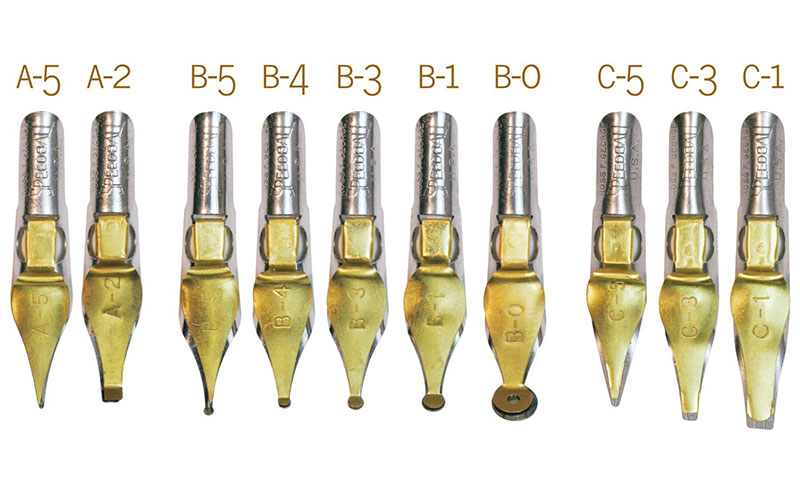 Speedball 10 Pen Nib Assorted Set
Speedball 10 Pen Nib Assorted Set
Another type of pen for pen and ink drawing is called a technical pen. Technical pens, unlike dip pens allow for movement in various directions without fear of splattering. Some technical pens have a reservoir built into the pen that can be refilled with ink, while other technical pens are disposable. Refillable pens are more expensive while disposable pens are logically less expensive.
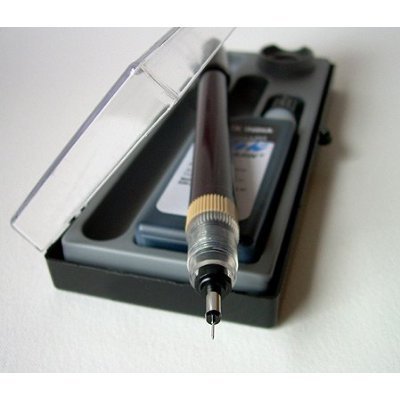
Koh-I-Noor Rapidosketch Technical Pen Sets 0.25 mm
Some pens used for pen and ink drawing techniques feature a brush tip. A variety of marks can be made these pens that cannot be made with pens that have a defined nib or tip.
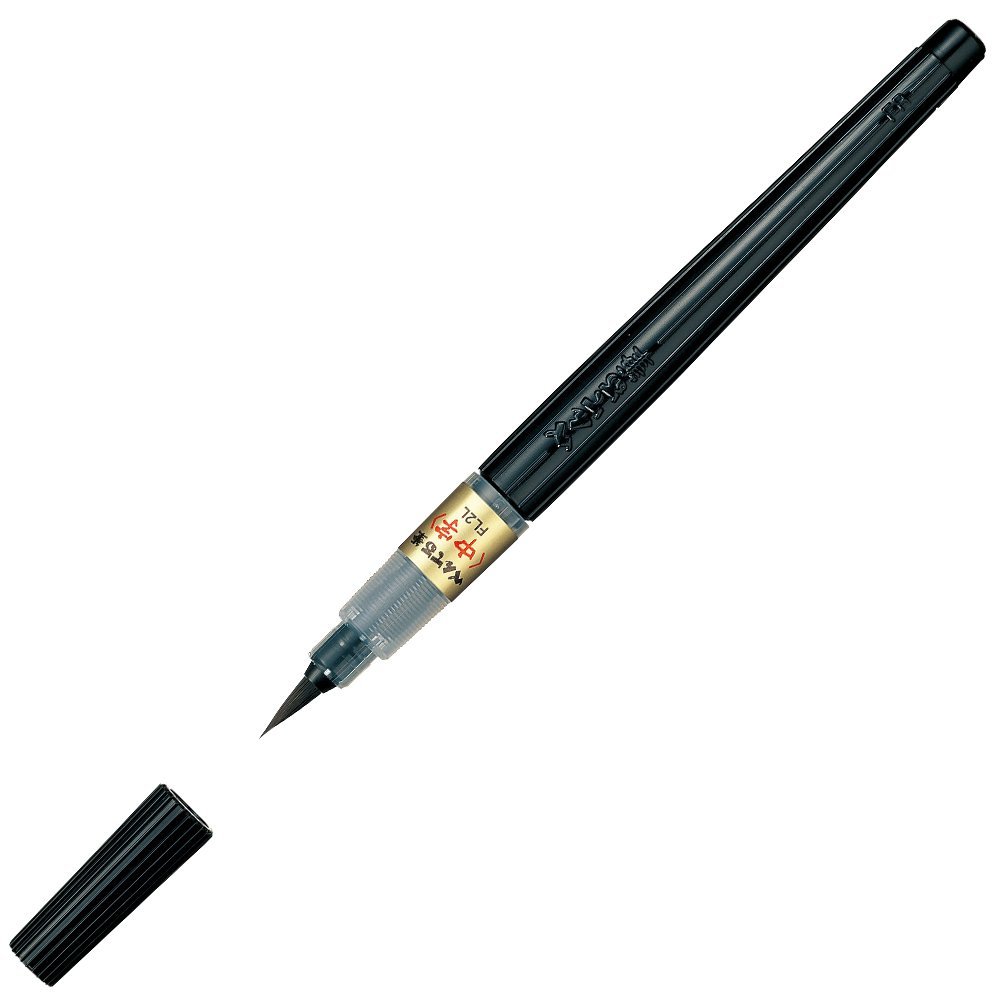
Pen and ink drawings are mostly created on different types of paper. The tooth, or texture, of the paper can effect the marks that are made by the pen. Most artists prefer to work on smoother surfaces to create detailed ink drawings. Learn more about drawing papers here.
Bristol paper is a smooth surfaced paper that is heavier than regular drawing paper. Bristol paper tends to be a popular choice for pen and ink drawings because of it's characteristics. Another popular choice for ink drawings is cold press illustration board. Although the tooth of cold press illustration board is generally rougher than Bristol paper, the thickness of the board adds more stability. Some artists combine pen and ink drawing with other media, such as watercolor. In these cases, the second medium may influence the surface chosen.